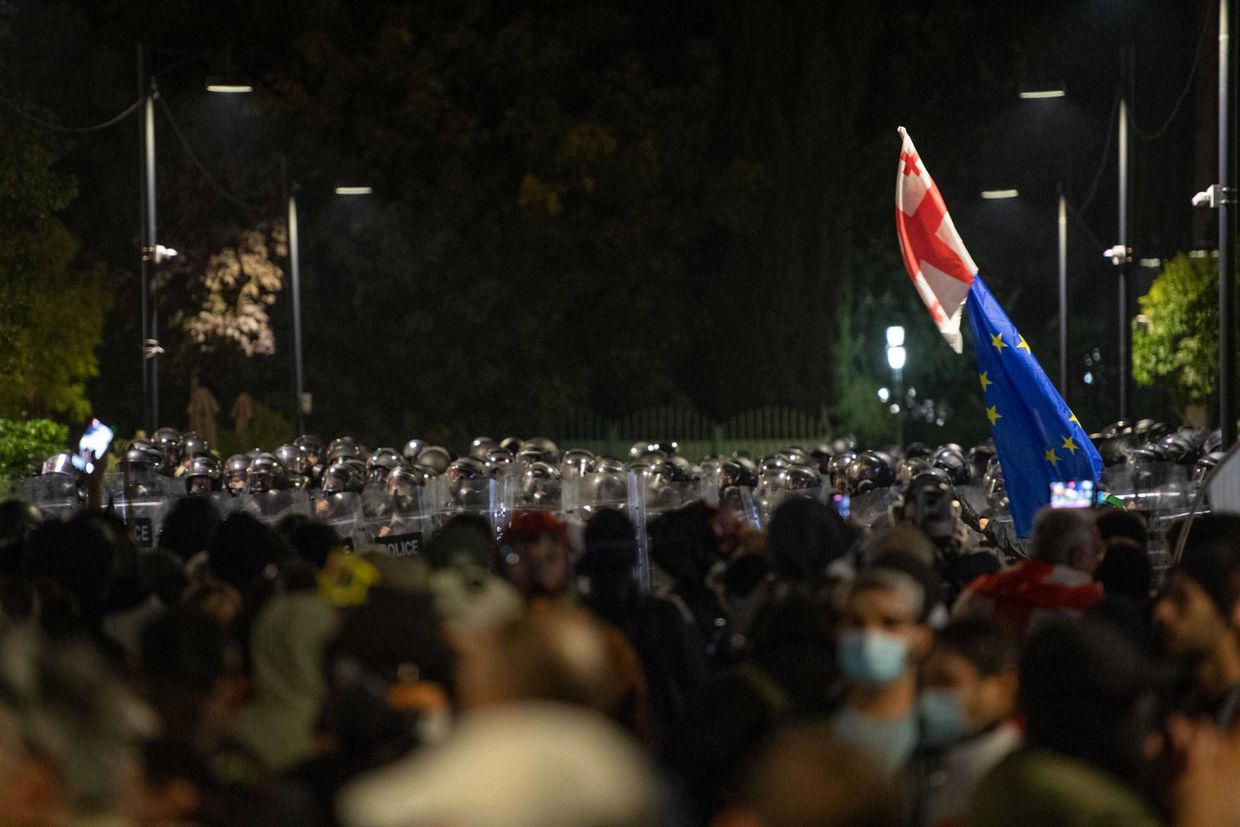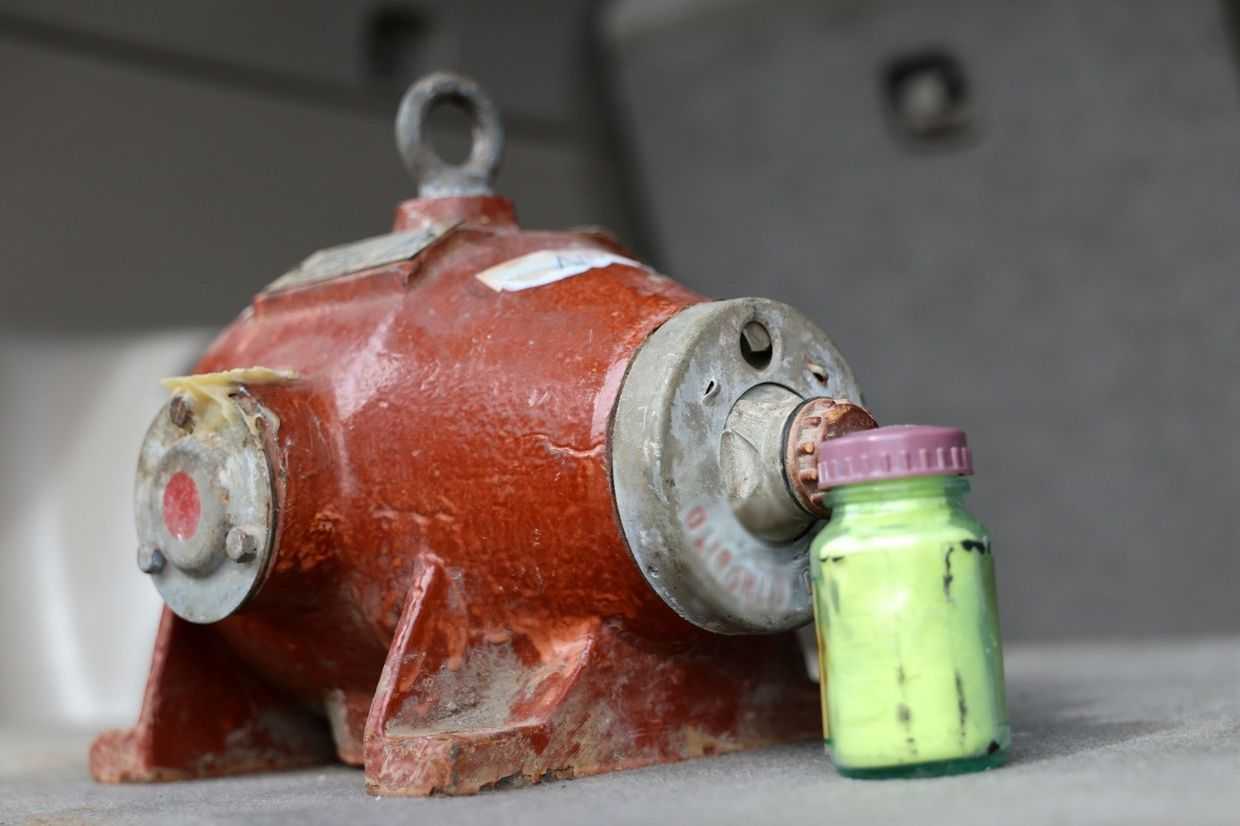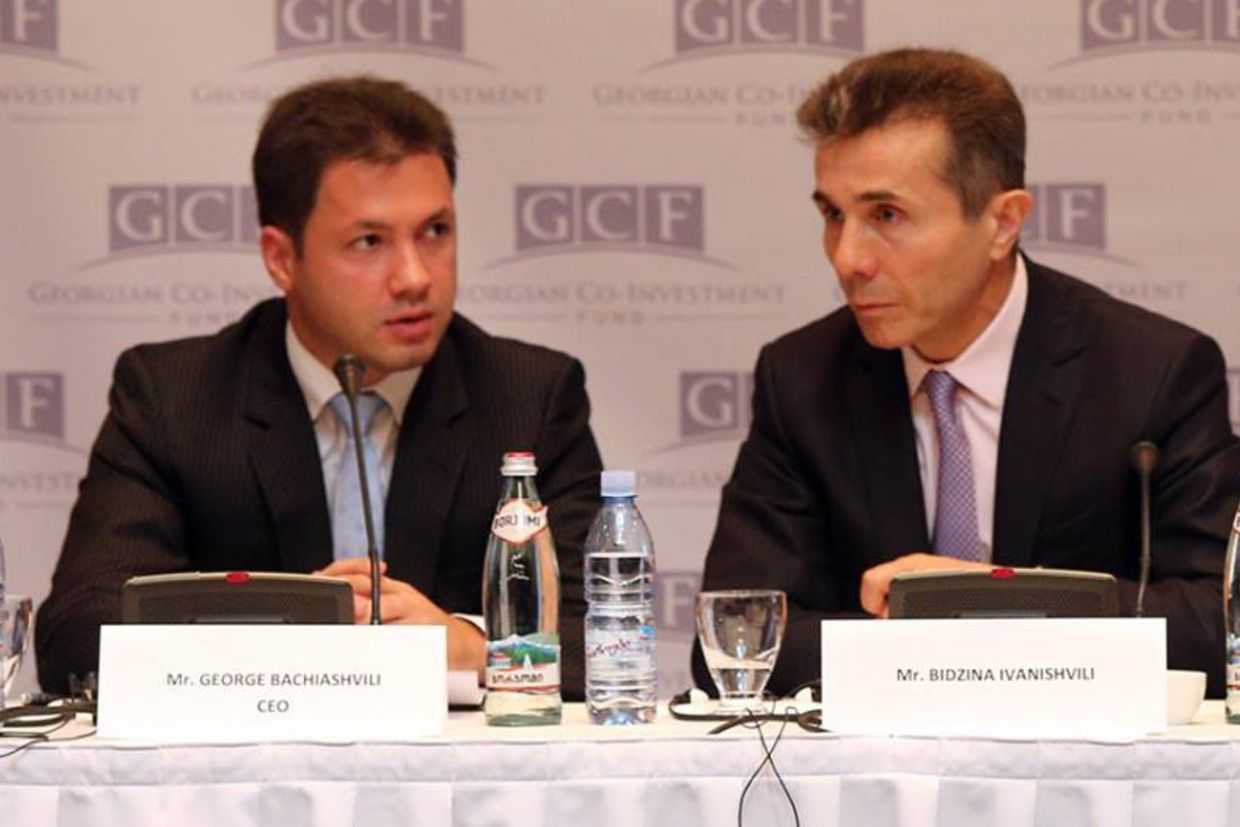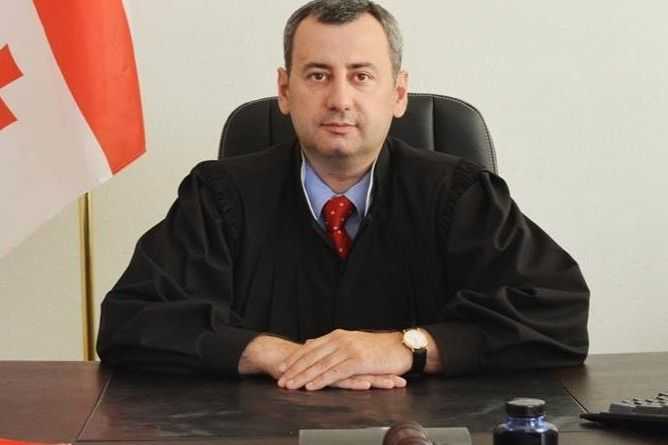Detentions continue after 4 October protests as state vows to clamp down on daily demonstrations
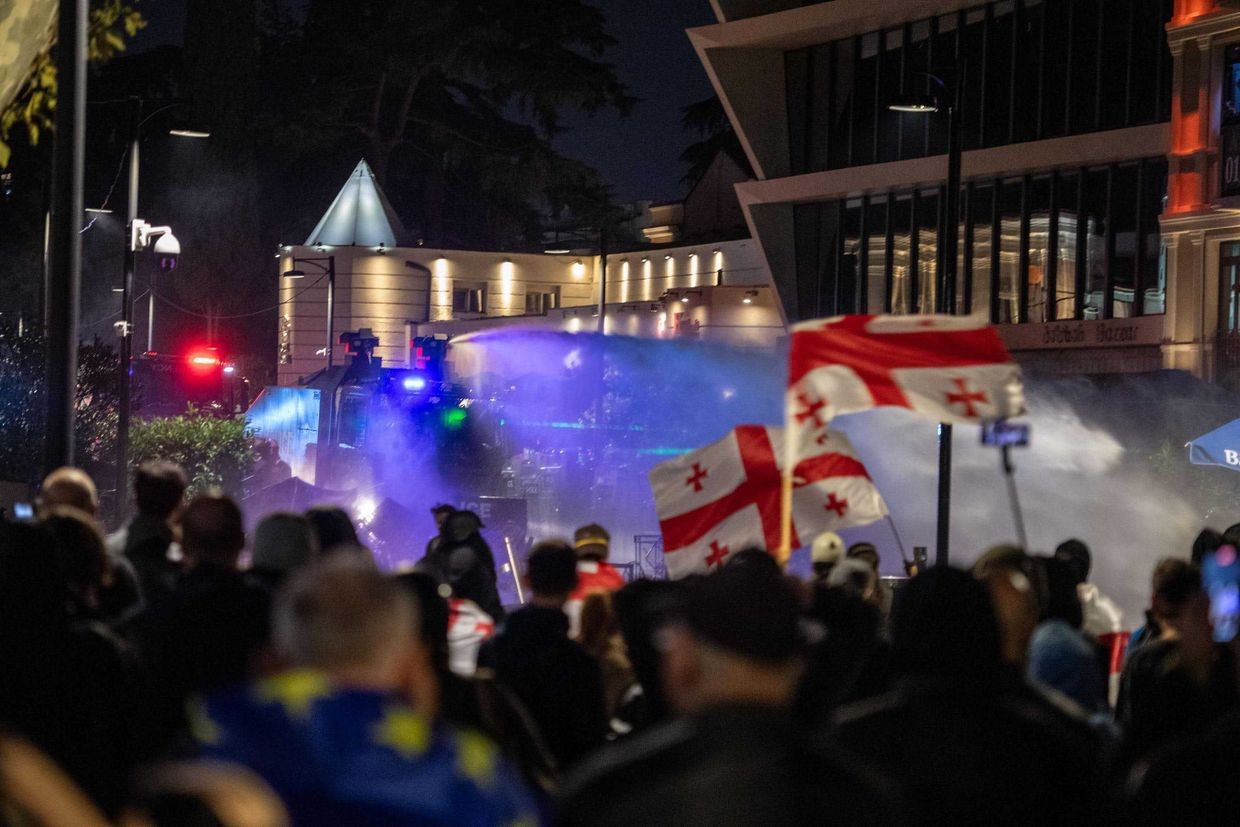
Georgia’s Interior Ministry has announced the arrest of five more individuals in connection with the 4 October anti-government protest in Tbilisi, bringing the official number of detainees in the case to 23.
Two separate briefings were held at the ministry on Tuesday night regarding the arrests — the first announcing four new detainees, and the second covering the remaining one.
The day before, on Monday, the ministry announced the detention of 13 individuals as part of the ‘first stage’ of police operations.
The ministry noted that several people were still being sought and that work was ongoing to ‘identify other individuals involved in the crime and to bring them to criminal responsibility’.
On 4 October, in parallel to the partially boycotted municipal elections, tens of thousands gathered on Tbilisi’s Liberty Square to attend an anti-government demonstration, branded previously as a ‘peaceful revolution’.
In the early evening, after hearing a call for male demonstrators to march toward the nearby presidential residence on Atoneli Street, a group of protesters attempted to storm the building. In response, police used tear gas, water cannons, and pepper spray. Protesters built barricades, and sporadic clashes around the residence continued late into the night.
The Georgian government has since called the unrest a coup attempt which it has blamed on domestic opposition they claim was aided by ‘foreign intelligence services’.
The Interior Ministry said they had launched an investigation into the 4 October events under four articles of the criminal code: incitement to violently overthrow the constitutional order or the government, group violence, seizure or blocking of a strategic facility, and damage or destruction of property.
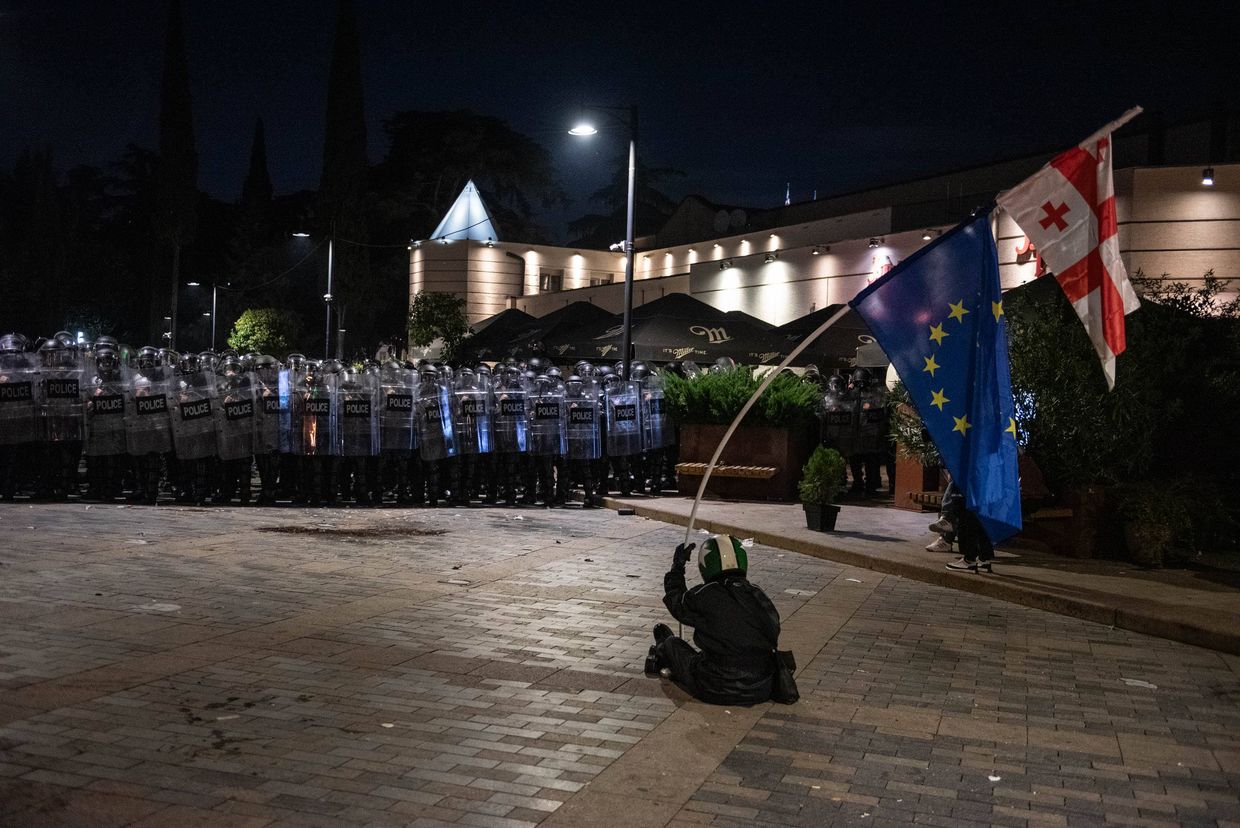
On the same day the Interior Ministry announced the latest arrests, Tbilisi City Court remanded five opposition figures — namely opera singer and protest initiator Paata Burchuladze and all those he named as being members of the protest’s ‘organisation committee’ — to pre-trial detention. All five were detained on Saturday night, some of them directly from the protest site.
Their case is being reviewed by Judge Lela Maridashvili, who, before her judicial appointment, served as a member of the Sagarejo municipal council representing the ruling Georgian Dream party. Citing concerns about impartiality, defence lawyers requested Maridashvili's recusal, which she refused to grant.
Everyday protests under increasing pressure
Since 4 October, daily anti-government protests have been under increasing pressure from the state. Despite this, participants, who have been protesting for almost 11 months, still block Tbilisi’s main avenue near the parliament building for several hours each night.
Prime Minister Irakli Kobakhidze has repeatedly downplayed the significance of the demonstrations, threatening a policy of ‘zero sympathy’ against the movement, which he again claimed is supported by ‘foreign intelligence services’.

Police, who once managed traffic during evening blockades, have been barely present since Saturday. On Tuesday night, several vehicles drove into the protest area and tried to push through, sparking tension — police briefly ordered protesters to clear the road before withdrawing. What comes next remains unclear.
The non-stop rallies have been held since 28 November, when the Georgian government announced the suspension of the country’s EU membership bid. The gatherings and matches take place without clear organisers or party affiliation.
The first phase of the protests was marked both by police violence and attacks on protesters and journalists by unidentified masked individuals.
Since the start of the protests, police have detained hundreds of people, with criminal cases launched in more than 50 cases. Many have already been convicted, and their release remains one of the protesters’ key demands.
